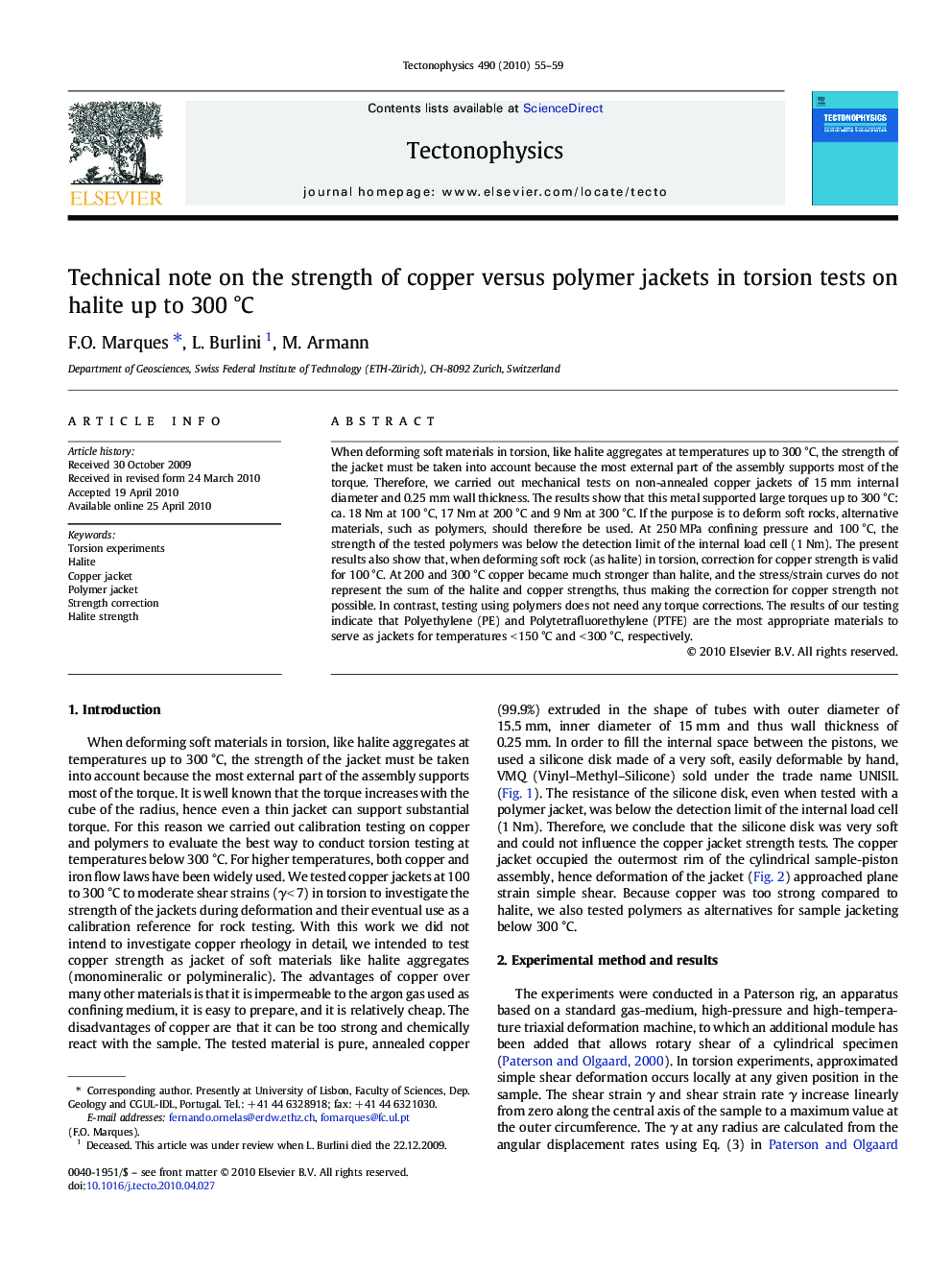| کد مقاله | کد نشریه | سال انتشار | مقاله انگلیسی | نسخه تمام متن |
|---|---|---|---|---|
| 4693469 | 1636865 | 2010 | 5 صفحه PDF | دانلود رایگان |

When deforming soft materials in torsion, like halite aggregates at temperatures up to 300 °C, the strength of the jacket must be taken into account because the most external part of the assembly supports most of the torque. Therefore, we carried out mechanical tests on non-annealed copper jackets of 15 mm internal diameter and 0.25 mm wall thickness. The results show that this metal supported large torques up to 300 °C: ca. 18 Nm at 100 °C, 17 Nm at 200 °C and 9 Nm at 300 °C. If the purpose is to deform soft rocks, alternative materials, such as polymers, should therefore be used. At 250 MPa confining pressure and 100 °C, the strength of the tested polymers was below the detection limit of the internal load cell (1 Nm). The present results also show that, when deforming soft rock (as halite) in torsion, correction for copper strength is valid for 100 °C. At 200 and 300 °C copper became much stronger than halite, and the stress/strain curves do not represent the sum of the halite and copper strengths, thus making the correction for copper strength not possible. In contrast, testing using polymers does not need any torque corrections. The results of our testing indicate that Polyethylene (PE) and Polytetrafluorethylene (PTFE) are the most appropriate materials to serve as jackets for temperatures < 150 °C and < 300 °C, respectively.
Journal: Tectonophysics - Volume 490, Issues 1–2, 15 July 2010, Pages 55–59